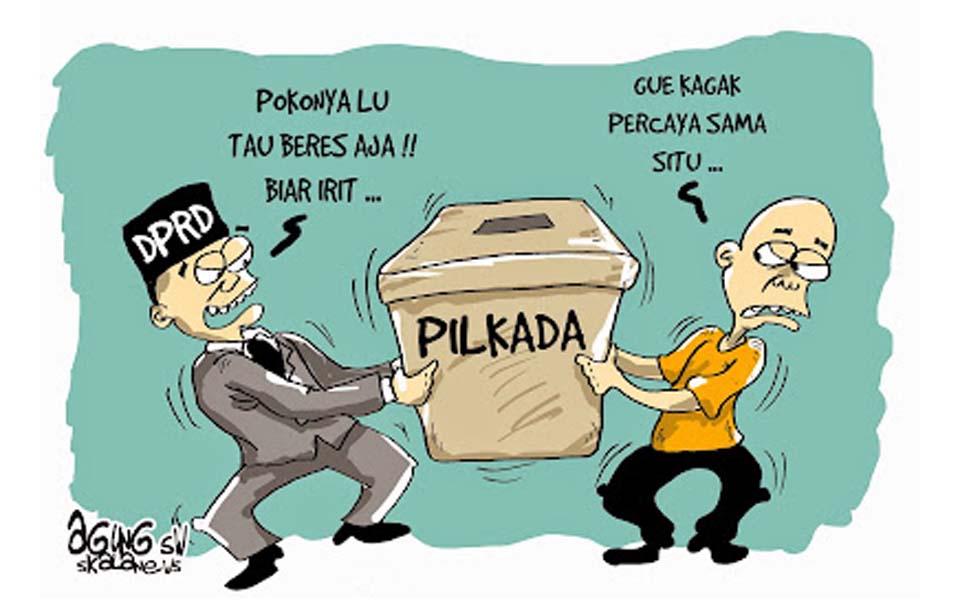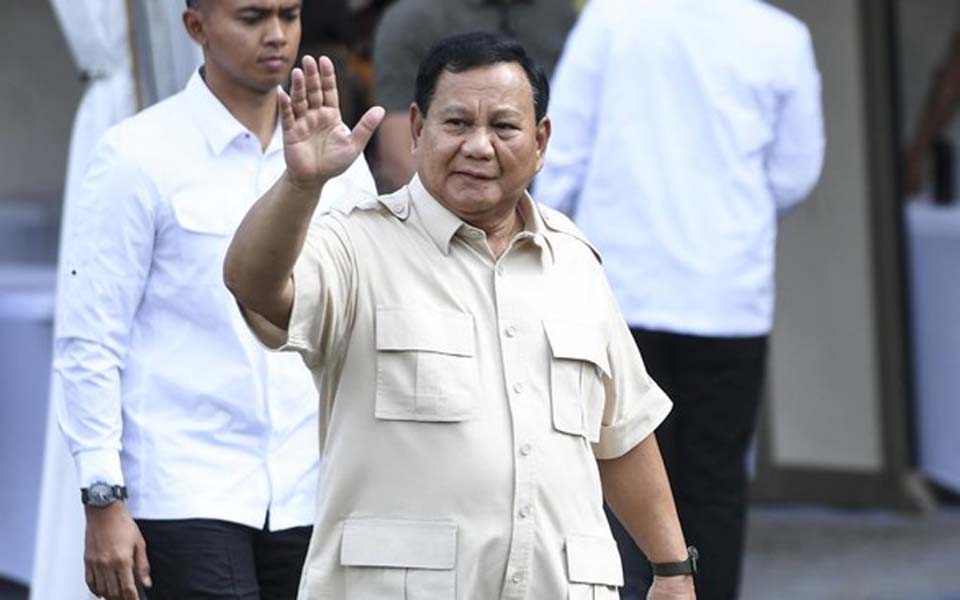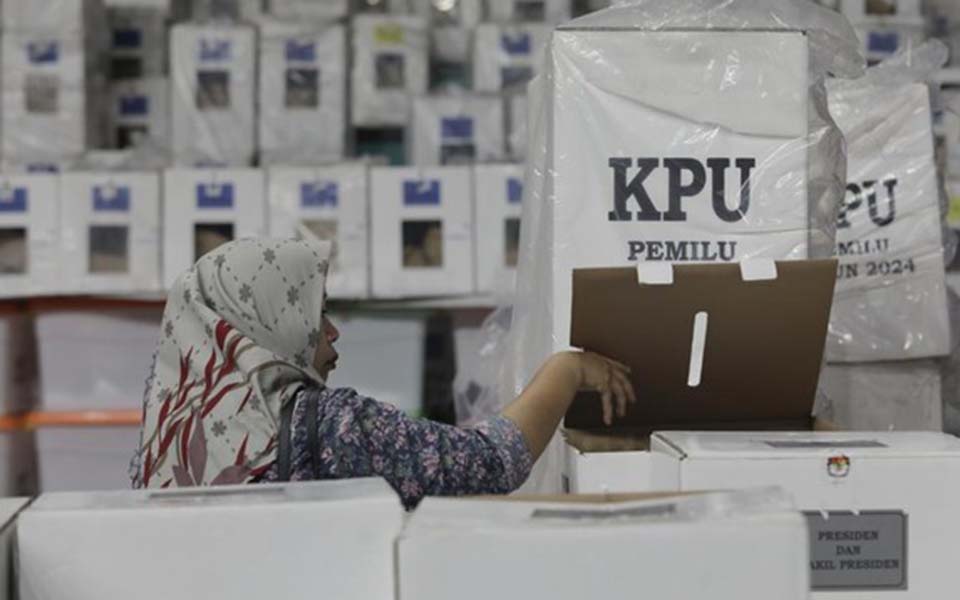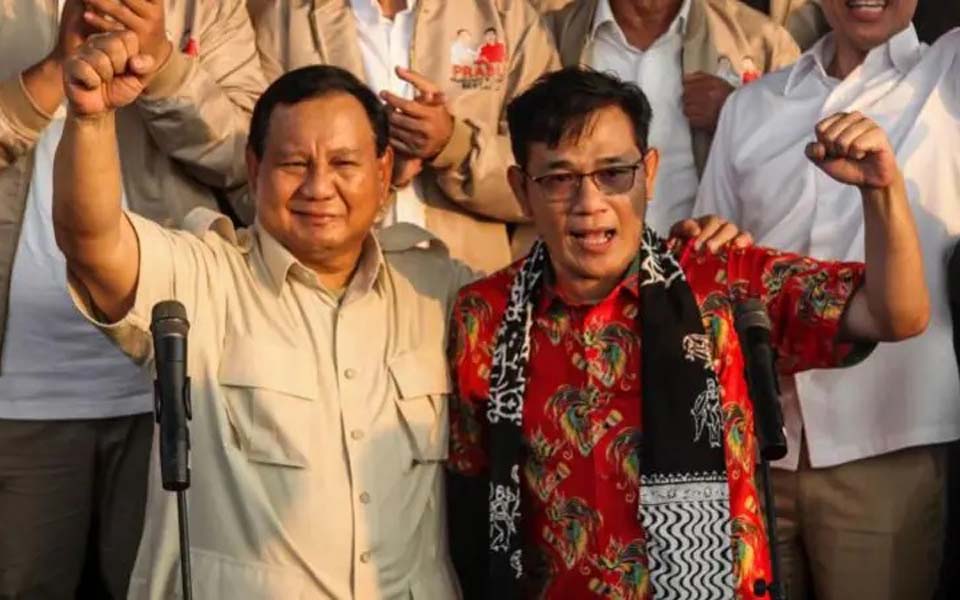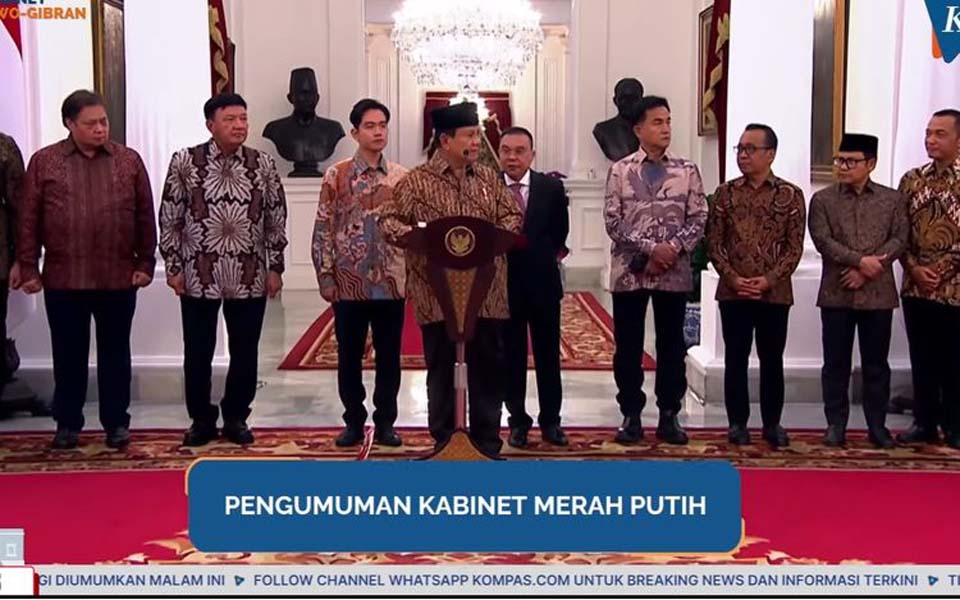Jakarta – At around 11.45am on Tuesday January 27, two groups of demonstrators from the Central Leadership Committee of the People’s Democratic Party (KPP-PRD) and student demonstrators from the Administration Branch of the Mandala Indonesia Higher School of Education (STIAMI) held demonstrations at the offices of the National Elections Commission (KPU). Before arriving at the KPU offices, they had also held a demonstration at the Hotel Indonesia roundabout.
The carried a number of posters and banners including ones which read “Not an election, but unifying the people to take power”, “Come on people, revolt so as not to be poor”, “Form a government of the poor, create socialism”.
According to the general chairperson of the PRD, Yusuf Lakaseng, the demonstration was organised because in their view the political parties participating in the elections, in terms of their programs, have absolutely no answers to the basic problems which are being faced by the nation, such as the increasingly acute sickness of corruption, neoliberal colonialism, militarism and the oppression against women. “These political parties have no solution to this problems”, said Lakaseng.
As a result, they are convinced that the coming elections will only produce the same forces as those who were in power before them. Although acknowledging that this is not in the framework of rejecting or supporting the elections, the PRD however is calling for the creation of a united democratic force to build a broad people’s movement front. Because of this, in the present stage of the struggle, the PRD is calling for the creation of a government of the poor.
They also called on the people’ss movement and the extra-parliamentary bourgeois democrats to form a strong united front. This united front must broaden its structure from the national down to the village level. However this united political front must be consistent, be loyal to the interests of the people and involve the broadest and most effective mobilisation of the people.
They also called for the formation of as many welfare coordination posts in the poor people’s settlements, in the factories, on campus and in the kampungs as possible. These posts would be a tool for discussion, formation of ideas and as a base for the demands for people’s prosperity. This is because it has been proven that the people’s rights will only be obtained by path of struggle and though demands which involve the boarder masses.
[Translated by James Balowski.]











